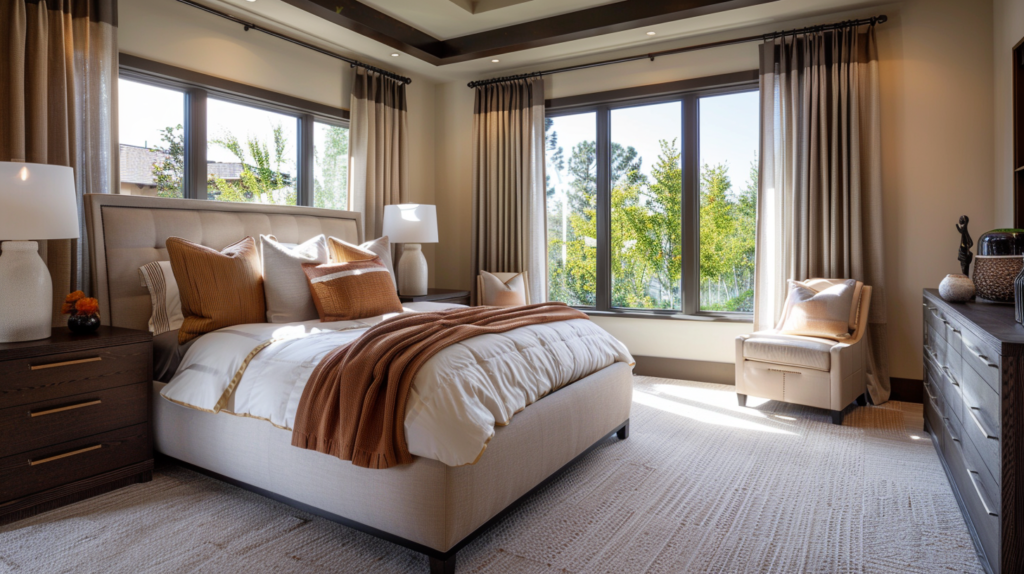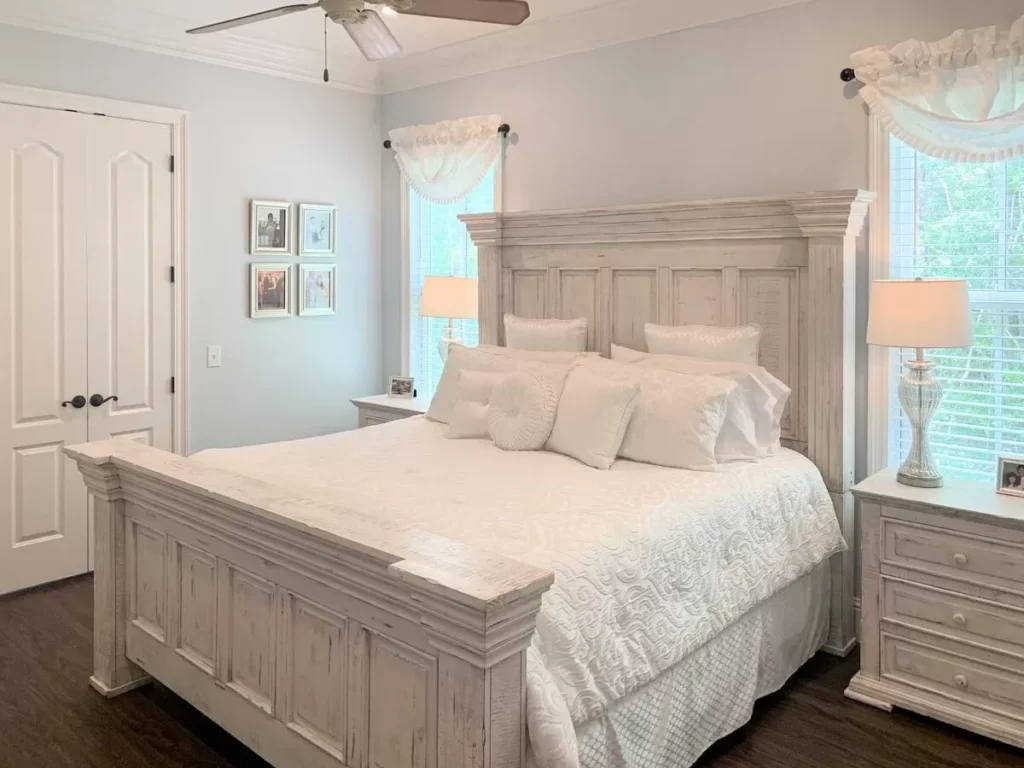Why You Should Think Twice About Having a Guest Room in Your Home
When designing a new home, one decision that often requires careful consideration is whether or not to include a guest room.
A friend recently suggested to me that forego a guest room as it might just be wasted space. This comment got me thinking, and it appears to be a sentiment shared by several homeowners and architects today.
So, let’s examine whether it is worth sacrificing a guest room in modern home designs and what implications this decision might have.

Do People Really Skip the Guest Room?
This was the first question I had. After some research, it appears that more people are indeed considering forgoing a dedicated guest room. But it’s not as simple as a yes or no answer; the trend reflects the changing dynamics in how we use our living spaces.
The Changing Landscape of Home Design
Modern home design has increasingly focused on flexibility and functionality. Urban living often means maximizing every square foot, and rural living isn’t far behind in adapting to a “less is more” philosophy.
So why might someone choose not to have a guest room?
How Frequently Do You Have Guests?
Arguably, the most straightforward question to ask is: “How often do you actually have overnight guests?”
If the answer is rarely, then a guest room might indeed be underutilized. In my experience, the guest room in my previous home was used perhaps a handful of times a year.
The rest of the time, it was a forgotten space, filled with items that didn’t quite fit anywhere else in the house. It was essentially an expensive storage room.
Maximizing Usable Space
In a modern home, every square foot is valuable. Keeping a room exclusive for infrequent visits means wasting space that could be better utilized regularly.
For instance, turning the potential guest room into a home office, gym, or playroom for children could significantly enhance your daily life.
What Are the Alternatives?
There are practical and creative alternatives to a traditional guest room that do not compromise on hospitality while maximizing everyday home use.
Multi-Functional Spaces
Consider multi-functional or dual-purpose rooms. One wonderful and practical solution is a Murphy bed. These beds fold up into the wall when not in use, transforming a guest room into an office, study, or dining area when needed.
In the past year, I dedicated my guest room space to a functional home office. With the flexibility of a fold-up bed, it transforms seamlessly into a guest room when required, optimizing the space wonderfully.
Sleeper Sofas and Daybeds
Similarly, sleeper sofas and daybeds are fantastic for such purposes. These valuable pieces of furniture can provide a comfortable sleeping space for guests without taking up permanent floor space needed for daily activities.
Airbnb and Nearby Accommodation
Instead of having a permanent guest room, some homeowners opt to give their guests a budget for nearby accommodations like hotels or Airbnb. This approach ensures that guests are comfortable and well taken care of without the home losing valuable space.
Pros and Cons of Having a Guest Room

Getting a good grasp of the benefits and drawbacks of a dedicated guest room can help frame this decision.
Pros of Having a Guest Room
- Hospitality: Obviously, a guest room provides comfort and privacy for overnight visitors.
- Multi-Purpose Use: It can serve as a home office, a hobby room, or a quiet reading space when not occupied by guests.
- Short-Term Rental Potential: Platforms like Airbnb offer you the chance to earn extra income by renting out your guest room.
Cons of Having a Guest Room
- Underutilization: If you rarely have overnight guests, the room might stay empty most of the year, occupying valuable space.
- Cost: Furnishing and maintaining an extra room can be expensive.
- Cleanliness: Keeping an unused room clean and ready can become an additional chore.
How Does This Impact Home Value?

The impact on home value is another consideration.
Here’s what you should consider:
Market Demand and Potential Buyers
Traditionally, more bedrooms mean a higher value, but this isn’t always the case. Modern buyers often value functionality over quantity. Features like a spacious home office or extra living area might appeal more than an unused extra bedroom.
Versatility, Value, and Property Tax
A versatile design retains its value because it meets the changing needs of its occupants. While a home with fewer bedrooms might reduce property taxes, the improved functionality and aesthetics could keep its market appeal high.
When Should You Keep the Guest Room?

While there are many compelling reasons to forgo a guest room, there are also scenarios where retaining it makes perfect sense.
Frequent Visitors
If you have frequent guests, such as grandparents visiting to spend time with their grandchildren, a guest room could be invaluable. It ensures comfort and maintains their independence during visits.
Future Family Needs
Planning for the future? If you anticipate expanding your family, an extra room can provide flexibility as your needs grow. Sometimes, foresight in home design resolves future space dilemmas before they arise.
Specific Home Purpose
Homes with specific purposes, like vacation properties or large family homes, may require dedicated guest spaces. If you host large gatherings or extended family events, having a permanent guest room might be practical.
My Personal Choice
When my partner and I were designing our home, the guest room debate was a significant part of our discussions. We love hosting family but noted that these visits were infrequent. Additionally, we both work from home and needed versatile spaces that could adapt to our everyday lives.
Eventually, we decided against a dedicated guest room in favor of a multi-functional space with a pull-out couch. This room now serves as a home office and a guest room when required. This choice has provided incredible value and flexibility, affirming our decision was the right one for us.
What Homebuyers Prefer Today
Homebuyers are increasingly valuing flexible and functional home designs over traditional layouts. The minimalist movement and the emphasis on efficient living spaces are driving these preferences.
Trend Analysis
The COVID-19 pandemic has further accelerated this trend by highlighting the need for adaptable spaces. As many people transitioned to working from home, the demand for dedicated offices or multi-functional rooms increased, and the luxury of an unused guest room became less justifiable for some.
Conclusion: Flexibility is Key
In conclusion, whether or not to include a guest room in your home is a decision that should be guided by your unique lifestyle and needs. As we’ve discussed, there’s a growing trend towards maximizing usable space with versatile, multi-functional rooms rather than dedicating a rarely used room to guests.
Based on my personal journey from having a dedicated guest room that was often a glorified storage space, I found greater satisfaction in redesigning with flexible, everyday use in mind. By doing so, not only does your home function better on a daily basis, but it also remains welcoming to guests when the need arises.
Ultimately, home design is about creating a space that works for you. Consider how you live, how often you entertain guests overnight, and how best to utilize your home’s square footage. With thoughtful planning, you can achieve a balance that offers both functionality and hospitality.
